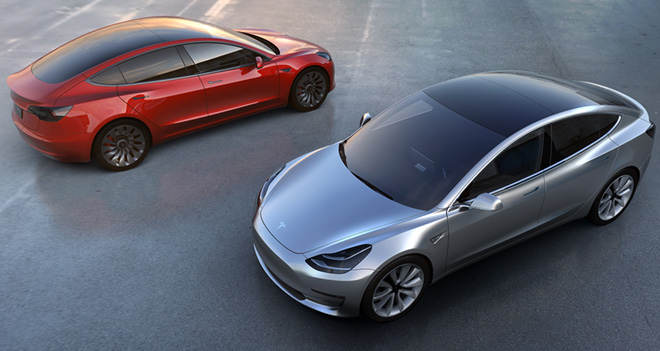Tesla has never been afraid to ignore “the way things are done” in the auto industry, and its willingness to skip costly and time-consuming processes is part of the reason the company is able to get things done so quickly. As Tesla gears up for an unprecedented expansion of production volume, it plans to cut out a step that other carmakers consider standard procedure.
Automakers typically test a new model’s production line by building vehicles with relatively cheap prototype equipment that can be modified to address problems, then discarding the temporary tools once production is running smoothly – a process known as “soft tooling.”
Tesla is skipping that step and installing permanent equipment on the line from the beginning, Musk told a group of investors last month. He said that “advanced analytical techniques” (computer simulations) would help Tesla in advancing directly to production tooling.
To traditional industry observers, it’s a risky move. Production equipment designed to produce millions of cars is expensive to repair or replace if it doesn’t work. Tesla has had its share of quality-control issues on its existing low-volume cars, and problems with the higher-volume Model 3 could be disastrous. “It’s an experiment, certainly,” said Consumer Reports’ Jake Fisher. “It could be they have unsuspected problems they’ll have a hard time dealing with.”
However, part of the reason for the change is that lower-grade temporary equipment may have been part of the problem with the long-delayed Model X SUV in 2015, a source “familiar with Tesla’s assembly line planning” told Reuters. Working on a tight deadline, Tesla had no time to incorporate lessons learned from soft tooling, making its value negligible. “Soft tooling did very little for the program and arguably hurt things,” said the source.
Tesla has also learned to better modify production tools, and its 2015 purchase of Michigan tool and die manufacturer Riviera Tool means it can make equipment 30 percent faster than before, and more cheaply as well, said Reuters’ source.
For once, Tesla is not the first to try a new way of doing things. Audi recently launched production at a plant in Mexico using computer simulations of the entire assembly line and factory, and the company said this allowed the plant to launch production 30 percent faster than usual. An Audi executive involved in the Mexican plant launch, Peter Hochholdinger, is now Tesla’s VP of Production.
Source: Reuters


















































